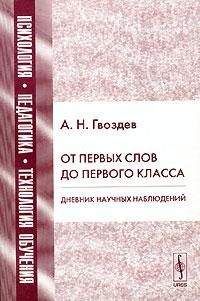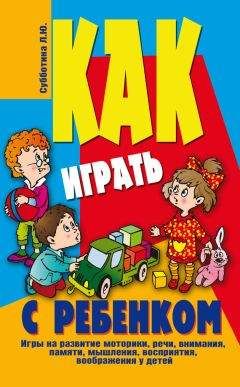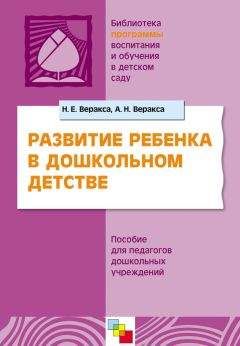Роберт Говард - Английский язык с Р. Э. Говардом
He had entered the part of the city reserved for the temples (он вошел в часть города, отведенную для храмов; to reserve — запасать; отводить часть какой-л. территории для какой-л. цели). On all sides of him they glittered white in the starlight (со всех сторон от него они сверкали белым цветом в свете звезд) — snowy marble pillars and golden domes and silver arches (снежно-белые мраморные колонны, золотые купола и серебристые арки), shrines of Zamora's myriad strange gods (места поклонения мириадам необычных богов Заморы; shrine — рака; храм; место поклонения, святыня). He did not trouble his head about them (он не забивал ими голову; to trouble — беспокоить; докучать, затруднять); he knew that Zamora's religion (он знал, что религия Заморы), like all things of a civilized, long-settled people (как и все вещи = все у цивилизованного, долгое время оседлого народа; settled — прочный; оседлый), was intricate and complex and had lost most of the pristine essence in a maze of formulas and rituals (была запутанной и сложной, и потеряла большую часть изначальной сущности в неразберихе догматов и ритуалов; to lose — терять; maze — лабиринт; неразбериха; formula — формула; догмат). He had squatted for hours in the courtyards of the philosophers (он часами сидел на корточках во внутренних дворах философов), listening to the arguments of theologians and teachers (слушая споры богословов и духовных наставников; teacher — учитель; духовный наставник), and come away in a haze of bewilderment (и уходил в тумане замешательства; to come away — уходить), sure of only one thing, and that (уверенный лишь в одном: «в одной вещи», а именно в том), that they were all touched in the head (что все они были /малость/ тронутые; touched /in the head/ — тронутый, не в порядке с головой).
trouble [trʌbl], ritual [ˈrɪʧuəl], touch [tʌʧ]
He had entered the part of the city reserved for the temples. On all sides of him they glittered white in the starlight — snowy marble pillars and golden domes and silver arches, shrines of Zamora's myriad strange gods. He did not trouble his head about them; he knew that Zamora's religion, like all things of a civilized, long-settled people, was intricate and complex and had lost most of the pristine essence in a maze of formulas and rituals. He had squatted for hours in the courtyards of the philosophers, listening to the arguments of theologians and teachers, and come away in a haze of bewilderment, sure of only one thing, and that, that they were all touched in the head.
His gods were simple and understandable (его боги были просты и понятны); Crom was their chief (Кром был их главой), and he lived on a great mountain (и он жил на большой горе), whence he sent dooms and death (откуда он посылал вовне приговоры и смерть; to send — посылать; forth — дальше; вовне, наружу). It was useless to call on Crom (было бесполезно взывать к Крому; to call on smb. — взывать, обращаться к кому-л.), because he was a gloomy, savage god, and he hated weaklings (потому что он был мрачным, свирепым богом и ненавидел слабаков; savage — дикий; свирепый). But he gave a man courage at birth (но он даровал человеку при рождении храбрость; to give — давать; дарить), and the will and might to kill his enemies (и волю и мощь, чтобы убивать врагов; might — энергия; сила, мощь), which, in the Cimmerian's mind, was all any god should be expected to do (что по мнению киммерийца было всем, чего следовало ожидать от любого бога; mind — ум; мнение).
chief [ʧi:f], mountain [ˈmauntɪn], might [maɪt]
His gods were simple and understandable; Crom was their chief, and he lived on a great mountain, whence he sent forth dooms and death. It was useless to call on Crom, because he was a gloomy, savage god, and he hated weaklings. But he gave a man courage at birth, and the will and might to kill his enemies, which, in the Cimmerian's mind, was all any god should be expected to do.
His sandaled feet made no sound on the gleaming pave (его ноги в сандалиях не производили шума по мерцающей мостовой; to make — делать; производить). No watchmen passed (не прошло ни одного караульного), for even the thieves of the Maul shunned the temples (ибо даже воры «Булавы» сторонились храмов), where strange dooms had been known to fall on violators (в которых, как было известно, странная гибель обрушивается на злоумышленников = постигает злоумышленников; doom — рок; смерть;to fall on — нападать на; обрушиваться на /о несчастьях/). Ahead of him he saw, looming against the sky, The Tower of the Elephant (перед собой он увидел маячащую на фоне неба Башню Слона). He mused, wondering why it was so named (он задумался, гадая, почему она так называется; to wonder — удивляться; интересоваться). No one seemed to know (кажется, никто не знал). He had never seen an elephant (он никогда не видел слона), but he vaguely understood that it was a monstrous animal (но смутно он догадывался, что это гигантское и безобразное животное; to understand — понимать; догадываться;monstrous — безобразный, уродливый; гигантский, исполинский), with a tail in front as well as behind (с хвостом спереди и сзади). This a wandering Shemite had told him (это рассказал ему один странствующий шемит), swearing that he had seen such beasts by the thousands in the country of the Hyrkanians (клянясь, что он видел таких тварей тысячами в стране гирканийцев); but all men knew what liars were the men of Shem (но все люди знали, какие лжецы люди Шема). At any rate, there were no elephants in Zamora (во всяком случае, в Заморе не было слонов).
violator [ˈvaɪəleɪtə], elephant [ˈelɪfənt], country [ˈkʌntrɪ]
His sandaled feet made no sound on the gleaming pave. No watchmen passed, for even the thieves of the Maul shunned the temples, where strange dooms had been known to fall on violators. Ahead of him he saw, looming against the sky, The Tower of the Elephant. He mused, wondering why it was so named. No one seemed to know. He had never seen an elephant, but he vaguely understood that it was a monstrous animal, with a tail in front as well as behind. This a wandering Shemite had told him, swearing that he had seen such beasts by the thousands in the country of the Hyrkanians; but all men knew what liars were the men of Shem. At any rate, there were no elephants in Zamora.
The shimmering shaft of the tower rose frostily in the stars (мерцающая колонна башни неприветливо возвышалась среди звезд; shaft — древко копья; колонна, столб;to rise — подниматься, возвышаться). In the sunlight it shone so dazzlingly that few could bear its glare (в солнечном свете она сияла так ослепительно, что немногие могли вынести ее блеск), and men said it was built of silver (и люди говорили, что она построена из серебра; to build — строить). It was round, a slim, perfect cylinder (она была круглой, вытянутый цилиндр совершенной формы; slim — тонкий, стройный), a hundred and fifty feet in height (высотой в сто пятьдесят футов), and its rim glittered in the starlight with the great jewels which crusted it (а ее обод-ограждение сверкал в свете звезд огромными драгоценными камнями, которые покрывали ее; to crust — покрывать корой, коркой). The tower stood among the waving, exotic trees of a garden raised high above the general level of the city (башня стояла среди качающихся экзотических деревьев сада, высоко поднятого над общим/основным уровнем города; general — общий; превалирующий; основной). A high wall enclosed this garden (высокая стена окружала этот сад), and outside the wall was a lower level, likewise enclosed by a wall (а за стеной был более низкий уровень, тоже огороженный стеной). No lights shone forth (не светились огни наружу = изнутри; to shine — светить; светиться); there seemed to be no windows in the tower (казалось, в башне нет окон) — at least not above the level of the inner wall (по крайней мере, выше уровня внутренней стены). Only the gems high above sparkled frostily in the starlight (лишь самоцветы высоко вверху холодно искрились в свете звезд).
shaft [ʃɑ:ft], height [haɪt], among [əˈmʌŋ]
The shimmering shaft of the tower rose frostily in the stars. In the sunlight it shone so dazzlingly that few could bear its glare, and men said it was built of silver. It was round, a slim, perfect cylinder, a hundred and fifty feet in height, and its rim glittered in the starlight with the great jewels which crusted it. The tower stood among the waving, exotic trees of a garden raised high above the general level of the city. A high wall enclosed this garden, and outside the wall was a lower level, likewise enclosed by a wall. No lights shone forth; there seemed to be no windows in the tower — at least not above the level of the inner wall. Only the gems high above sparkled frostily in the starlight.
Shrubbery grew thick outside the lower, or outer wall (за более низкой или внешней стеной густо рос кустарник; to grow — расти; thick — толстый; густой). The Cimmerian crept close and stood beside the barrier (киммериец подкрался поближе и стал возле преграды; to creep — ползать; красться), measuring it with his eye (измеряя ее на глаз). It was high, but he could leap and catch the coping with his fingers (она была высокой, но он мог подпрыгнуть и ухватиться за парапет стены пальцами; coping — верхний, перекрывающий ряд кладки стены; парапетная плита; карниз; to catch — поймать; схватить; зацепиться). Then it would be child's play to swing himself up and over (потом было бы пустяковым делом подняться = подтянуться и перемахнуть через /парапет/; child's play — пустяковое дело, легкая задача; to swing up — поднять; to swing over — поднимать; перемахнуть), and he did not doubt that he could pass the inner wall in the same manner (и он не сомневался, что сможет перебраться через внутреннюю стену таким же способом). But he hesitated at the thought of the strange perils which were said to await within (но он заколебался при мысли о необычных опасностях, которые, говорили, ожидают внутри). These people were strange and mysterious to him (эти люди были чужды и непостижимы для него); they were not of his kind (они были не его рода; kind — сорт; род, племя) — not even of the same blood as the more westerly Brythunians, Nemedians, Kothians, and Aquilonians (даже не той же крови, что более западные бритунийцы, немедийцы, кофийцы и аквилонцы), he had heard of whose civilized mysteries in times past (о загадках цивилизаций которых в прошлые времена он слышал). The people of Zamora were very ancient and (люди Заморы были очень древними = древним народом и), from what he had seen of them, very evil (судя по тем, с которыми он встречался, очень злы и порочны; to see — видеть; понимать, знать; встречать; evil — злой; порочный).
measure [ˈmeʒə], blood [blʌd], ancient [ˈeɪnʃənt]
Shrubbery grew thick outside the lower, or outer wall. The Cimmerian crept close and stood beside the barrier, measuring it with his eye. It was high, but he could leap and catch the coping with his fingers. Then it would be child's play to swing himself up and over, and he did not doubt that he could pass the inner wall in the same manner. But he hesitated at the thought of the strange perils which were said to await within. These people were strange and mysterious to him; they were not of his kind — not even of the same blood as the more westerly Brythunians, Nemedians, Kothians, and Aquilonians, he had heard of whose civilized mysteries in times past. The people of Zamora were very ancient and, from what he had seen of them, very evil.




